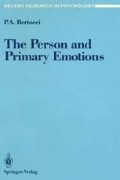Abstract
In this chapter I shall suggest the direction in which the theory of the person I am proposing should be expanded, especially in view of the phenomena of sleep and some influential concepts of “the unconscious.”
Access this chapter
Tax calculation will be finalised at checkout
Purchases are for personal use only
Preview
Unable to display preview. Download preview PDF.
Notes for Chapter Two
I find persuasive H. D. Lewis’s critique of S. Shoemaker’s discussion of the criteria of self-identity in Self-Knowledge and Self-Identity, 1963. But while Lewis’ own view of the awareness of self-identity is more plausible than Shoemaker’s (see The Elusive Mind, 1969, 221–226, and especially 240f.), I am doubtful that Lewis could sustain his claim that I am immediately aware of my identity in directly successive moments and over intermittency if there were no experience of “me-again” (to which I have appealed as the basis of my affirmation of self-identity).
Brand Blanshard, Nature of Thought, vol. 1 (London: Allen and Unwin, 1939), 513.
I owe this quotation to James G. Miller, Unconsciousness (New York: Wiley and Sons, 1942), 283, who quotes Ellis, The World of Dreams (Boston: Houghton Mifflin, 1911), 10.
For an illuminating, brief outline of the psycho-logic of the unconscious in Freud and others, including Jung, see Orville S. Walters, “Theology and Changing Concepts of the Unconscious” in Religion and Life (Spring 1968). Aware of the shifts in Freud’s own thinking, Walters has support from other scholars when he contends that while Freud began with a (legitimate) hypothetical construct of the unconscious, he (and many of his followers) talked of this unconscious and its dynamics as if these were the result of observations upon which other theories were properly based. Walters is also cognizant of the fact that the ego lost its servility and developed more autonomy in the ego-psychology that later developed in part from Freudian and from Jungian beginnings. Freud himself at one point said: “This ego developed out of the id, it forms with it a single biological unit, it is only a specially modified peripheral portion of it, and it is subject to the influences and obeys the suggestions that arise from the id.” I owe this quotation (italics added) to Walters, ibid., 6, quoting from Freud’s Works, vol. 19 (London: Hogarth Press, 1963), 133.
Sigmund Freud, The Ego and the Id, (New York: International Universities Press, 1957), 29–30.
This view differs from that of my teacher, Edgar S. Brightman, who tended to regard unconscious process beyond the control of “normal” consciousness as “intimate partner of our reflective conscious selves, but no more a part of them than are other reflective selves or sub-personal selves.” E. S. Brightman, Person and Reality, ed. Peter A. Bertocci, et al (New York: Ronald Press, 1958), 174; and see 207–209. See also “Brightman’s View of the Self, the Person, and the Body,” 8 (Philosophical Forum, 1950): 21–28.
Frederick R. Tennant, Philosophical Theology, vol. 1 (Cambridge University Press, 1928), 42, 120.
Author information
Authors and Affiliations
Rights and permissions
Copyright information
© 1988 Springer-Verlag New York Inc.
About this chapter
Cite this chapter
Bertocci, P.A. (1988). The Person and the Unconscious. In: The Person and Primary Emotions. Recent Research in Psychology. Springer, New York, NY. https://doi.org/10.1007/978-1-4612-3914-7_2
Download citation
DOI: https://doi.org/10.1007/978-1-4612-3914-7_2
Publisher Name: Springer, New York, NY
Print ISBN: 978-0-387-96812-4
Online ISBN: 978-1-4612-3914-7
eBook Packages: Springer Book Archive

